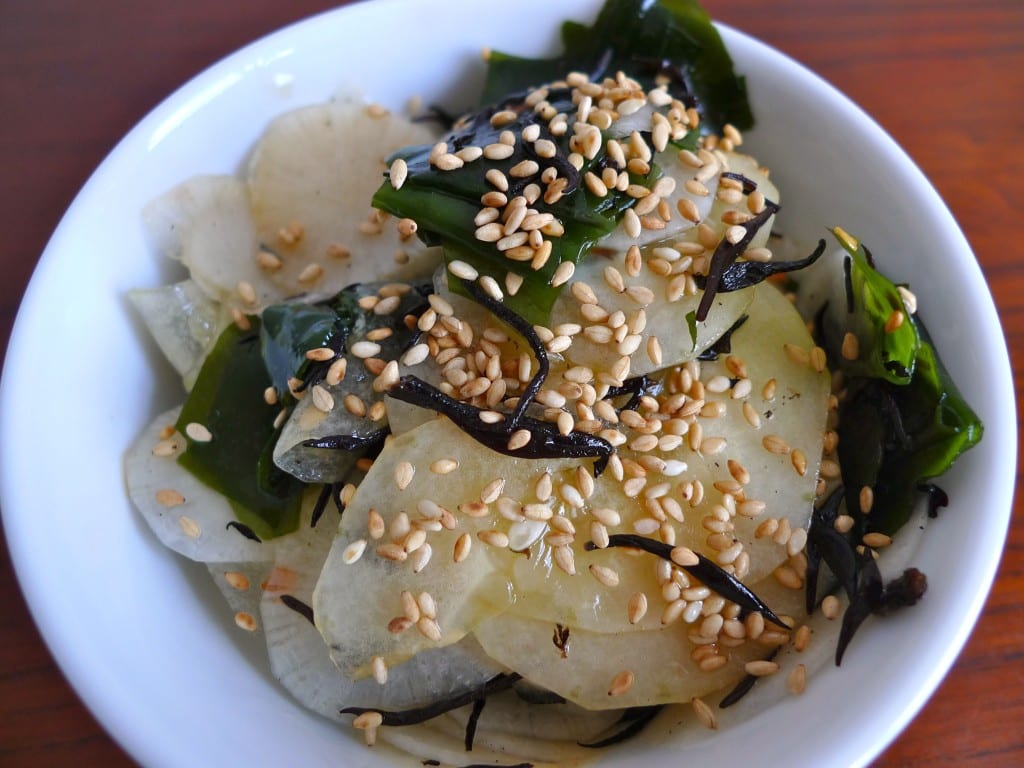Hijiki is known to be rich in dietary fiber and minerals such as calcium, iron and magnesium.
Wakame has been used by TSM (Traditional Chinese Medicine)for blood purification, intestinal strength, skin, hair, reproductive organs and menstrual regularity. More than anything else: they taste really good.
Both are rich in iodine which is a key micronutrient may women today are deficient in. The breast tissue, the brain and the thyroid gland have the largest number of iodine receptors which means if you are deficient, you may develop breast lumps, nodules, hypothyroidism and experience foggy brain and fatigue.
Women with Hashimoto’s disease and elevated TPO antibodies should not be consuming iodine-rich foods.
Interested in learning more about how to find hormonal balance with proper nutrition? Join our exclusive full program viewing below:
[adrotate banner=”14″]
- In a medium bowl, soak the wakame and hijiki in warm water for 10 minutes. Strain after.
- In a small bowl make the dressing my whisking the rice vinegar, coconut aminos, honey and sesame oil.
- In the serving bowl, place the cucumber and daikon. Add the seaweed and the sesame oil dressing. Toss until well combined.

Well, it sounds tasty but … I have Hashimoto and I should not eat rich iodine food. Could you explain why?
Why “Women with Hashimoto’s disease and elevated TPO antibodies should not be consuming iodine-rich foods”?
Can you explain please?
Hey Barbara,
Adding iodine with elevated TPO antibodies most often leads to the worsening of symptoms. Magdalena has worked with women with Hashimoto’s who became debilitated for months after taking iodine supplements. If you are interested in learning more, https://www.ncbi.nlm.nih.gov/pubmed/ offers severals studies regarding iodine and Hashimotos.
Hope this helps!
HB Team
[…] Seaweed Cucumber Salad […]